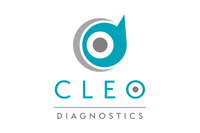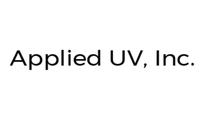Congresswoman Elise Stefanik Argues for Medical Device Tax Repeal
A bipartisan group of members of congress sent Paul Ryan a letter urging him make strides towards a medical device tax repeal.
The medical device industry has long been associated with America’s heartland, so fears over outsourcing jobs are particularly acute in the industry. However, times are changing and the medical device industry is assuming a much more cosmopolitan outlook.
According to Med Device Online, Republican Congresswoman Elise Stefanik is leading a bipartisan group of 44 members of congress in sending a leader to Speaker Paul Ryan. In this letter, the group urges Ryan to include language regarding a medical device tax repeal within the larger year-end legislative package.
Negative impact of the tax
The letter cites a negative impact on the US economy as one of the key reasons the tax should be repealed. It states that the current 2.3-percent excise tax costs medical device manufacturers $194 million per month in payments to the Internal Revenue Service. This cost, the group claims, has a visible detrimental impact on the industry, affecting hundreds of thousands of American jobs. Indeed, “in a competitive global economy, this tax threatens an innovative industry that directly employs 400,000 Americans, generates approximately $25B in payroll, and invests nearly $10B in research and development annually.”
A particular sticking point with this law is that it targets revenue, rather than profit. That places one of the highest corporate tax rates in the world on US medical device manufacturers, potentially discouraging American investment in this sector. As the letter notes, “American companies represent 38 percent of the global market and this tax threatens our nation’s ability to innovate and stay competitive.” When companies have to tighten their belts, research and development is one of the first areas to be reduced. The congressmen and congresswomen who oppose the tax view this as an unconscionable compromise: “this trade-off undermines the future of the industry and puts the discovery of new breakthrough medical technologies at risk.”
Decreasing US monopoly
These fears concerning America’s decreasing monopoly on the medical device industry are not unfounded. A new report from Research and Markets titled “Medical Device Sourcing — The China Market” notes that rapidly growing economies in Asia and South America are dramatically shifting the landscape of the medical device industry. Even devices that have received marketing authorization from the US FDA are increasingly being manufactured outside of North America.
However, there are still companies holding out in the US market. Chicago-based Tandem Diabetes Care (NASDAQ:TNDM) is one such example, while Retractable Technologies (NYSEMKT:RVP) is another. These companies illustrate that although the medical device tax may have a detrimental effect on American device corporations, there are still companies holding strong in the region.
Securities Disclosure: I, Morag McGreevey, hold no direct investment interest in any company mentioned in this article.



